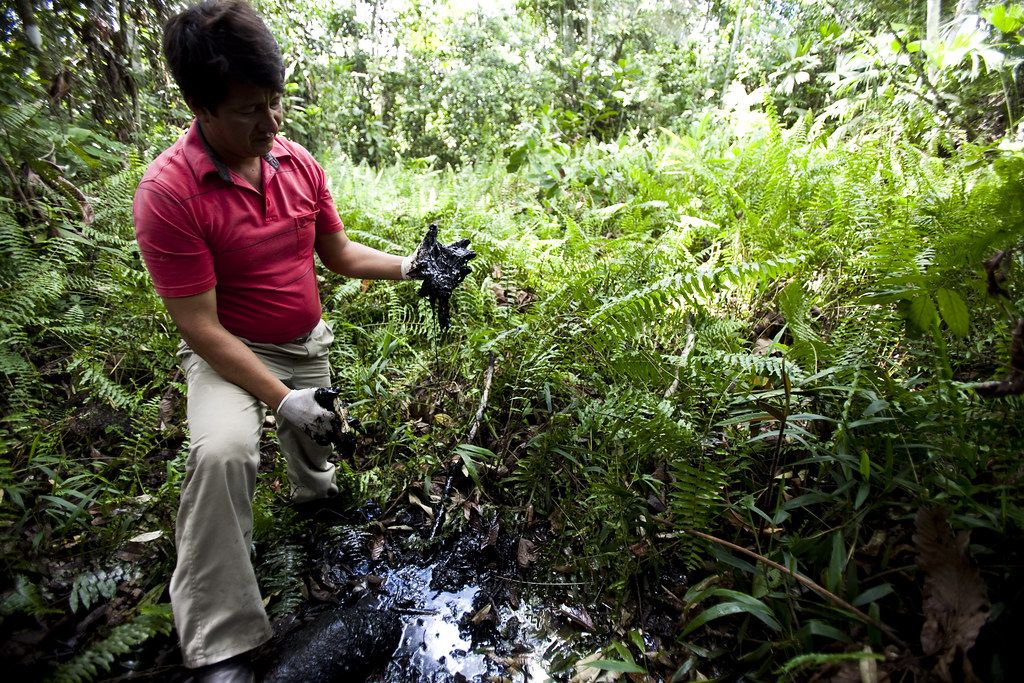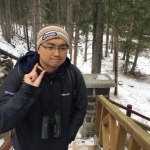美國雪佛龍(Chevron)公司的世紀污染訴訟案,有了最新進展。厄瓜多憲法法庭稍早駁回了雪佛龍對95億美元污染判決的最終上訴,認定該公司蓄意將數十億加侖的有毒油廢料傾倒在亞馬遜熱帶雨林的原民土地上。
長達151頁的判決書中,以8比0一致判定原告原民團體勝訴,並駁回了雪佛龍的所有說法,例如雪佛龍自己也是詐欺受害者,以及厄瓜多法院對此案無管轄權等都遭到駁回。
環境集體訴訟案 第四次獲勝
厄瓜多憲法法院僅審理憲法問題,是厄瓜多第三大上訴法院,也是該國第四個維持2011年判決結果的法院,連同厄瓜多最高民事法庭和國家法院一致裁定雪佛龍須做出鉅額賠償。
這個針對雪佛龍公司的集體訴訟案,判決書於7月11日發布,原告是守護亞馬遜陣線(Frente de Defensa de la Amazonia),代表厄瓜多亞馬遜北部地區80個原民和農民社區的草根團體。
該訴訟最初由約3萬名熱帶雨林村民於1993年在紐約聯邦法院提出,被告是前油田運營商德士古(Texaco,已被雪佛龍公司收購)。2001年雪佛龍公司接受厄瓜多具有管轄權後,一名美國聯邦法官將此案移交給厄瓜多法院。
「這個判決是厄瓜多人民20年來為了爭取環境正義,對抗世界級污染者、流氓企業的再一次巨大勝利,」環保金人獎得主、1993年訴訟案起草者楊澤(Luis Yanza)表示。他目前也是守護亞馬遜陣線的主席。
楊澤說:「在雪佛龍開始賠償厄瓜多人民前,任何國家都不應該與雪佛龍做生意。」
致癌油廢料污染 雪佛龍八年拖延纏訟
厄瓜多首席律師薩拉查(Patricio Salazar)表示,「司法已認定雪佛龍非法攻擊代表原住民社群的律師,而不是根據是非來訴訟。雪佛龍現在極有可能必須全額支付賠償金,因為它在法律上和道德上都有義務這樣做。」
厄瓜多初審法院依據105份技術證據報告,在2011年判決該公司致癌油廢料污染了1500平方英里的亞馬遜土地。但是八年來,雪佛龍以拖延戰術因應訴訟。
生活在熱帶雨林中的數千人,包括許多原住民,已經死於癌症,而成千上萬的人必須忍受這場世界級的公衛災難。
拒支付賠償金 村民仍沒有醫療
收受雪佛龍公司400口油井特許使用費的厄瓜多政府,沒有給受害者太大幫助。
哈佛大學畢業,代表厄瓜多村民的美國律師唐齊格(Steven Donziger)曾走訪受影響地區數十次,他表示受影響地區並沒有醫療服務,許多人甚至一次醫生都沒看,也沒接受任何治療就死於癌症。
「雪佛龍在厄瓜多引發了一場史無前例的人道主義危機。再不清除污染,未來幾年將有數萬人死亡。全世界都必須關注,雪佛龍的股東和管理層必須立即採取行動,解決這個日益嚴重的問題。」唐齊格說。
雪佛龍多年來一直拒絕支付判決賠償金,目前連本帶利已經來到120億美元(約新台幣1361億元)。
雪佛龍公司人員甚至威脅原民,若繼續堅持訴訟,他們可和原告「終身纏訟」。
卡普蘭法官 採信偽證風波
這份最新判決也是對美國紐約南區地方法院法官卡普蘭(Lewis A. Kaplan)的重大打擊。
2014年,這位具有爭議性的法官僅憑一位承認收賄的雪佛龍證人的假證詞便裁定,厄瓜多最高法院對雪佛龍提出的95億美元賠償判決是透過欺詐和脅迫手段取得。卡普蘭拒絕讓公正的事實調查員陪審團參與,也拒絕考量任何有關雪佛龍污染厄瓜多環境的證據。
但新事證顯示,雪佛龍支付厄瓜多前法官格拉(Alberto Guerra)大筆賄款之後,卡普蘭的判決被推翻。雪佛龍幫助格拉一家搬到美國後,格拉承認在雪佛龍律師的指導下作偽證。
卡普蘭僅憑格拉的偽證做出判決,也是全世界唯一做出有利雪佛龍判決的法官。
「出於省錢的錯誤營運決策」 法庭定調蓄意污染
基於比卡普蘭所能取得更完整的證據,17名厄瓜多法官作出有利厄瓜多村民的判決。12名加拿大法官,包括該國最高法院,也針對多個技術性問題作出有利厄瓜多村民的判決。
厄瓜多憲法法庭強調,雪佛龍污染環境造成嚴重後果不是意外造成,而是處心積慮為公司和股東省錢的運營決策,加上20年來蓄意拖延的額外罪行所導致。
厄瓜多原告也在加拿大法院取得了幾項上訴勝利,他們在加國蒐集雪佛龍資產,以迫使其遵守厄瓜多的判決。
In a benchmark pollution case, Ecuador’s Constitutional Court has rejected Chevron’s final appeal of a $9.5 billion pollution judgment that found the company deliberately dumped billions of gallons of toxic oil waste onto Indigenous lands in the Amazon rainforest.
The unanimous 8-0 decision, issued in a 151-page document published July 11, was a total victory for the Indigenous groups that brought the case and a rejection of all of Chevron’s claims.
The Court rejected Chevron’s allegations that it was victimized by fraud, and the court threw out the company’s claim that Ecuadorian courts had no jurisdiction over the matter.
Ecuador’s Constitutional Court, which deals only with Constitutional issues, is the third major appellate court in Ecuador and the fourth court overall in the country to uphold the trial-level decision against Chevron, which was issued in 2011. Ecuador’s highest civil court, the National Court of Justice, has ruled unanimously to affirm the judgment against Chevron.
The class action case against Chevron was spearheaded by the Frente de Defensa de la Amazonia, the Amazon Defense Front, a grassroots group representing 80 Indigenous peoples and farmer communities in Ecuador’s northern Amazon region.
The case was originally filed in 1993 in federal court in New York against the former oil field operator Texaco, now part of Chevron Corporation, on behalf of an estimated 30,000 rainforest villagers. But in 2001 a U.S. federal judge moved it to Ecuador’s courts at Chevron’s request after the company accepted jurisdiction there.
“This decision is another huge victory for the people of Ecuador in their historic two-decade battle for environmental justice against the world’s worst corporate polluter and rogue operator,” said Luis Yanza, a Goldman Prize winner who initiated the lawsuit against Chevron in U.S. federal court in 1993, and serves as president of the Frente de Defensa de la Amazonia, Amazon Defense Front.
“No country should ever do business with Chevron until the company first pays for the harm it caused to the people of Ecuador,” Yanza said.
Patricio Salazar, the lead Ecuadorian lawyer on the case, said, “Justice has prevailed over Chevron’s illegal attempts to engage in constant attacks on lawyers who defend the Indigenous communities rather than litigate in good faith on the merits. It is now highly likely that Chevron will pay every last dollar of the judgment against it, as it is legally and ethically obligated to do.”
After eight years of proceedings slowed by Chevron’s strategy of deliberate delay, Ecuador’s trial court relied on 105 technical evidentiary reports to find in 2011 that the company poisoned a 1,500 square mile area of the Amazon with carcinogenic oil waste.
Thousands who live in the rainforest, including many Indigenous peoples, have died of cancer while tens of thousands must endure what is one of the world’s worst ongoing public health catastrophes.
Ecuador’s government, which received royalties from Chevron’s operation of 400 well sites, has been of little help to the victims. Medical care in the affected region is non-existent, and many people perish from cancer without even visiting a doctor and after receiving no treatment, said Steven Donziger, the Harvard educated U.S. legal representative of the Ecuadorian communities, who has taken dozens of trips to the affected area.
“Chevron has caused a humanitarian crisis in Ecuador of epic proportions that is ongoing to this day,” he said. “Tens of thousands of people will die in the coming years if nothing is done to clean up the pollution. The world must pay attention and Chevron shareholders and management must act immediately to address this worsening problem.”
Chevron has refused for years to pay the Ecuador judgment, now worth $12 billion with interest. Company officials have threatened the Indigenous groups with a “lifetime of litigation” if they persist.
The latest Ecuadorean court decision is also a major blow to controversial Judge Lewis A. Kaplan, a judge of the U.S. District Court for the Southern District of New York.
In 2014, Judge Kaplan ruled that the $9.5 billion Lago Agrio judgment leveled against Chevron by Ecuador’s highest court, was obtained by way of fraud and coercion.
Kaplan relied on false testimony from an admittedly corrupt Chevron witness to find that the Ecuador judgment was procured by fraud. Kaplan refused to seat a jury of impartial fact finders, and he refused to consider any evidence of Chevron’s environmental contamination in Ecuador.
But Kaplan’s decision was disproven after evidence emerged that Chevron paid large sums to Alberto Guerra, a former Ecuadorian judge booted from the bench after he admitted taking bribes. Guerra was moved with his family by Chevron to the United States and later admitted lying on the stand after being coached for 53 days by Chevron lawyers headed by Randy Mastro at Gibson Dunn.
Kaplan based his core findings largely on Guerra’s false testimony. And Kaplan remains the only judge in the world to have ruled in favor of Chevron.
Seventeen Ecuador judges, who had access to a fuller evidentiary record than Kaplan, ruled in favor of the affected communities. Twelve judges from Canada, including the country’s entire Supreme Court, have also ruled in favor of the Ecuadorians on various technical issues.
The Ecuador decision confronts Chevron on the brutal human consequences of both its original environmental crimes, which the Court emphasizes were not the result of an accident, but rather of deliberate operational decision-making designed to save money and enrich the company’s shareholders and executives, and the additional offense of its two-decade campaign of distraction and delay.
The Ecuadorian plaintiffs also have picked up several appellate victories in Canadian courts as they attempt to collect Chevron assets in that country to force compliance with the Ecuador judgment.
※ 全文及圖片詳見:ENS










